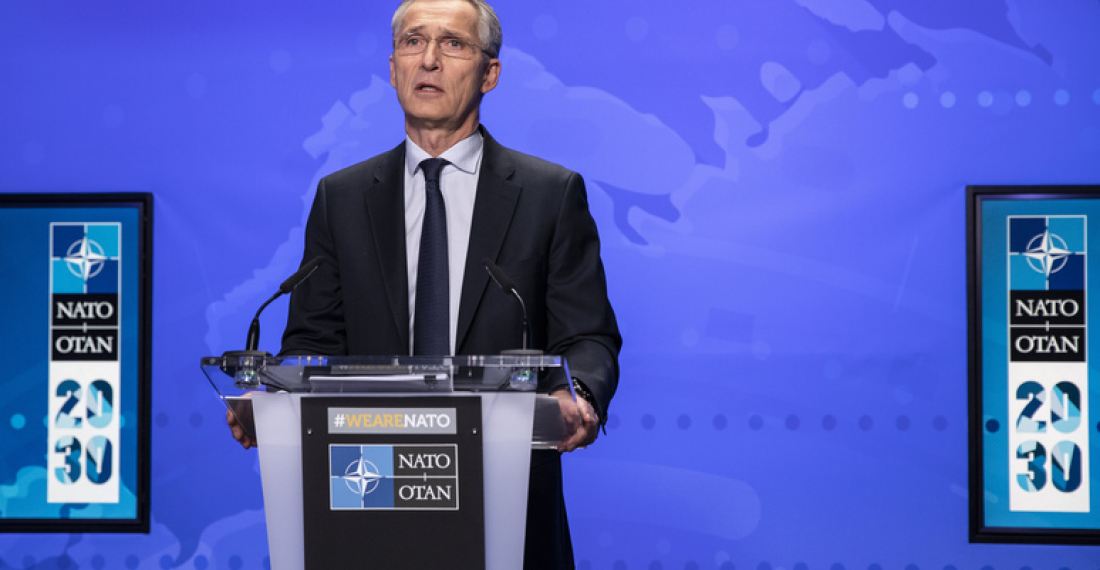NATO countries are concerned about Russian actions on their border, but will continue to pursue dialogue whilst adapting NATO’s deterrence posture to address Russia’s destabilising actions.
This was stated by NATO Secretary General Jens Stoltenberg, speaking after the first day of the meeting of the North Atlantic Council which was held on line with the participation of the foreign ministers of the NATO member states. Stoltenberg said,
"We see how Russia has deployed troops in violation of the wishes of different governments in our close neighbourhood, how Russia has illegally annexed Crimea, how they continue to destabilise eastern Ukraine, how there are Russian troops in parts of Georgia, and also how there are troops in Moldova, in Transnistria. And this is a violation of the territorial integrity of Moldova and is yet another example of how Russia far too often does not respect international law and the territorial integrity of countries, including Moldova."
In their meeting on Tuesday (1 December) the Ministers also discussed Russia's continued military buildup in the North Atlantic area and arms control. The Secretary General said, "We see Russia violating and undermining treaties. And deploying new weapons. Ministers expressed support for preserving limitations of nuclear weapons. And for developing a more comprehensive arms control regime. We all know that the New START treaty will expire next February, so time is running out. We welcome the dialogue between the United States and Russia to find a way forward. Because we should not find ourselves in a situation where there is no agreement regulating the number of nuclear warheads. We are adapting NATO’s deterrence posture to address Russia’s destabilising actions."
"At the same time, we all agree that we must continue to pursue dialogue with Russia", Stoltenberg said.
The meeting of the North Atlantic Council will continue this afternoon. In the first part ministers will hold discussions with partners from the Asia-Pacific region. In the second part the foreign ministers of Georgia and Ukraine will join the meeting.
source: commonspace.eu with the press service of NATO (Brussels)
photo: The NATO Secretary General speaking to the media after the meeting of the North Atlantic Council on 1 December 2020 (picture courtesy of the NATO press office)






